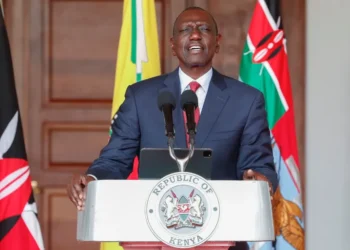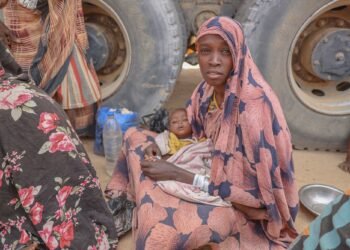Repeated attacks on healthcare services in South Sudan have prompted urgent warnings from humanitarian agencies, following the deadly bombing of a hospital over the weekend.
The airstrike, which occurred in Old Fangak, eastern Jonglei state, claimed the lives of seven civilians and left 20 more injured, according to the UN Office for the Coordination of Humanitarian Affairs (OCHA).
Dr. Humphrey Karamagi, the World Health Organization (WHO)’s representative in South Sudan, called the incident a disturbing sign of the country’s deepening crisis.
“Every time this happens, people lose access to health services – and sometimes, to hope. Health is the last safety net. If it fails, everything else will also fall.”
Dr. Humphrey Karamagi
The facility targeted was run by Médecins Sans Frontières (MSF), whose staff have now been forced to evacuate. This marks the eighth attack on healthcare infrastructure since January. According to WHO, health workers have been killed, and vital supplies and facilities either looted or destroyed. “More attacks may lead to closing half the health facilities along the Nile,” Dr. Karamagi warned.
Humanitarian operations have also come under fire, including cold chain storage needed to preserve vaccines and medical supplies. These challenges are compounding a volatile situation that has plagued South Sudan since its independence in 2011 and the civil war that soon followed.
The situation has become especially tense in Upper Nile state since March, where fighting between government forces and armed groups has uprooted an estimated 80,000 people in just three counties. According to WHO, violence is also spreading across Western Equatoria, Central Equatoria, and Unity states.
Attack Undermines Fragile Peace Efforts
The conflict has pushed tens of thousands, mainly women and children, into neighbouring countries, with Ethiopia receiving 23,000 South Sudanese refugees in recent weeks alone. Within the country, the humanitarian crisis is worsening as outbreaks of cholera, measles, malaria, and mpox continue to rise.
Cholera has infected more than 55,000 people since September, killing over 1,000, and Dr. Karamagi warned that if humanitarian access is further restricted, “The alternative, if we do nothing, would be bleak.” He projected that cholera cases could double in six weeks, and measles deaths could rise by 40 per cent if nothing is done.
The UN Commission on Human Rights in South Sudan has condemned the hospital bombing, labelling it a potential war crime. “This was not a tragic accident,” said Yasmin Sooka, Chair of the Commission. “It was a calculated, unlawful attack on a protected medical facility.”

MSF has confirmed the hospital’s destruction, including critical departments like the pharmacy and emergency care units. New Fangak has also been struck by aerial bombardments, raising fears of a broader campaign targeting healthcare institutions.
These attacks come on the heels of public threats from South Sudanese military forces demanding the return of seized boats and labelling several Nuer-majority counties, including Fangak, as “hostile.” Commissioner Barney Afako warned, “Designating entire communities as hostile is deeply irresponsible and may amount to collective punishment.”
The UN Commission has called for swift investigations, cautioning that the country’s fragile peace agreement could unravel if such violations continue. With high-level delegations from the African Union and IGAD now in Juba, pressure is mounting for renewed dialogue.
“The path South Sudan is currently on is perilous. If attacks like these continue with impunity, the Peace Agreement risks becoming meaningless.”
Yasmin Sooka
Dr. Karamagi ended with an appeal to the international community: “Help us make sure this doesn’t become the moment health – and hope – finally give way.”
READ ALSO: Grounds for Petitioning a Judge’s Removal Explained







